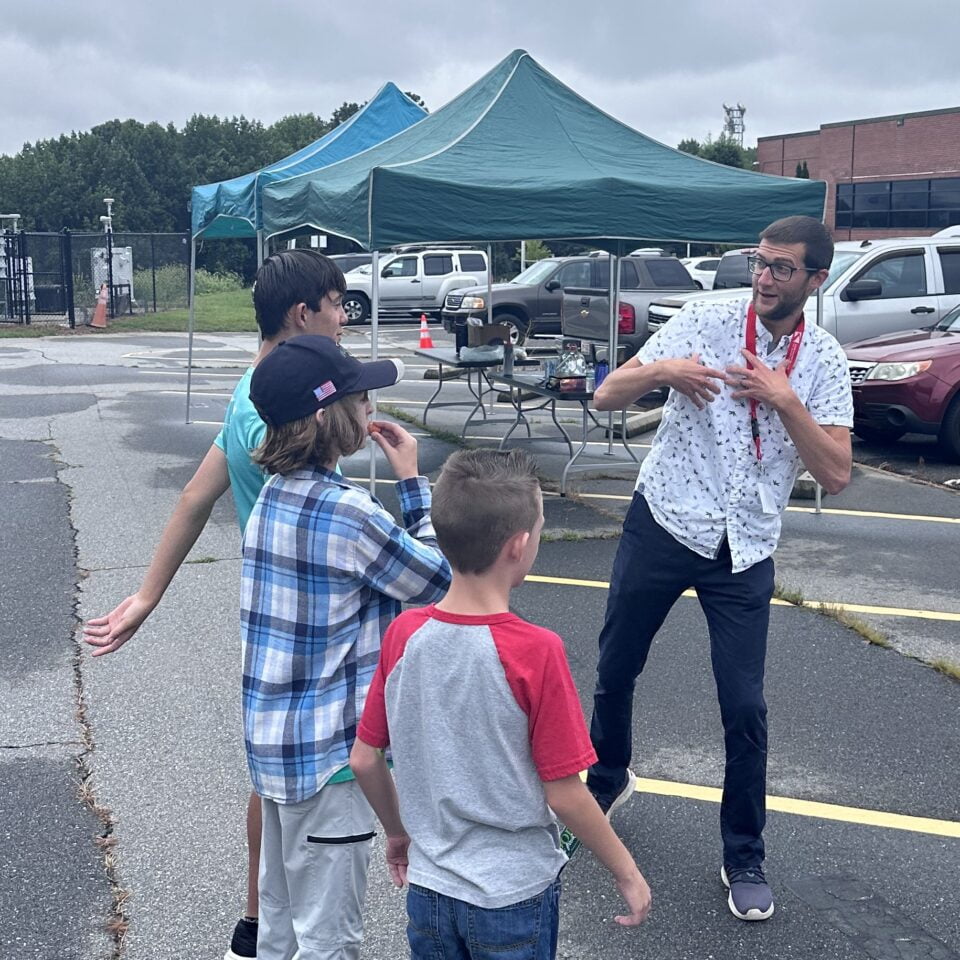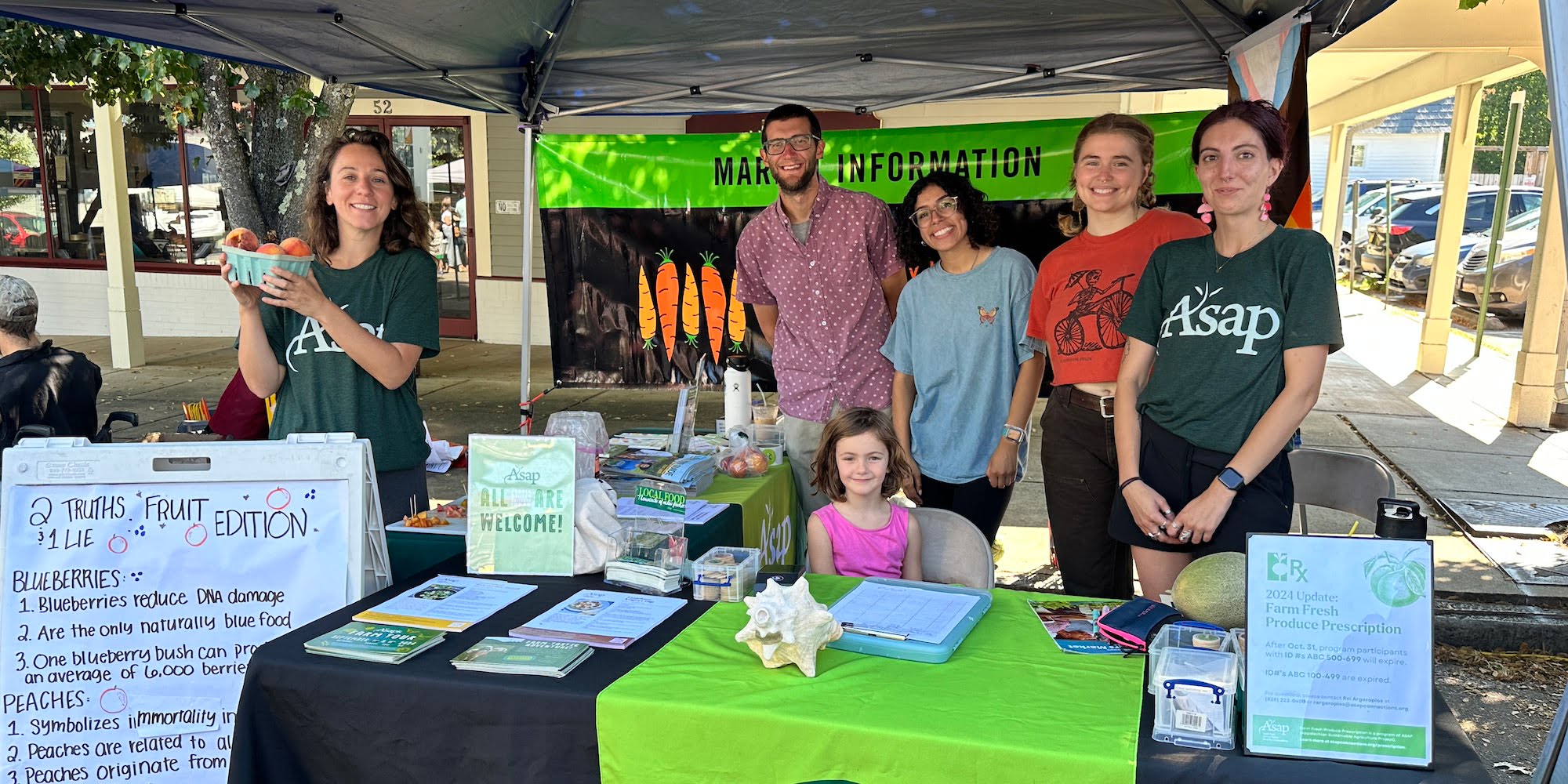William Yates is an AIG (Academically or Intellectually Gifted) teacher at Waynesville Middle School. He spent three weeks this summer embedded in ASAP’s programs as part of the 2024–25 Kenan Fellows Program for Teacher Leadership. The fellowship connects outstanding educators with mentors, creating opportunities and relationships to help students understand how STEM concepts apply in the real world. Danielle Raucheisen, ASAP’s Growing Minds Program Director, is serving as Williams’s mentor for the 2024–25 school year.
What do you teach at Waynesville Middle School?
This year will be my 11th year. For my first three years I taught seventh grade English. For the past eight I’ve been the AIG teacher for all grade levels—sixth, seventh, and eighth. I teach seven classes a day, including one special class that I sought permission for three years ago. That’s a hands-on, project-based class focused on servant leadership. I’m passionate about kids having a chance to emerge as leaders, grow those soft skills, and make change in their community. I really like trying to get our learning to go beyond the walls of the school.
For example, this past year we did a unit on the Town of Waynesville and how societies work. Students researched county and town government roles and then campaigned [to the class] to be elected to those roles. They learned the parameters for their department and developed ideas for improvement. They held a town hall meeting and created press conference videos. We mailed them to the current leaders in those positions, and about 75 percent responded!

What were some of your favorite experiences while at ASAP?
The variety of experiences has been spectacular! Everyone here has given me so much. I’ve had great field experiences with Suzi and Debbi [ASAP’s Growing Minds Program Coordinators]. My first day, I got to observe the Growing Minds Sprout Market at Eliada Home. Last week I got to help with the middle schoolers at Ag camp [through Buncombe County Career and Technical Education]. We pickled vegetables.
I went on tours of R Farm and TendWell Farm with David [ASAP Local Food Campaign Program Director], along with representatives from North Carolina Department of Instruction. It was really neat to hear those different perspectives, from state nutrition reps, farmers, and ASAP staff. I learned the ins and outs of school food system.
And farmers market experiences! I helped with taste tests and activities at the Weaverville and downtown Asheville markets. I also had a new experience as a shopper at the market in my own community, the Haywood market. It’s making me want to try new things.
Often farm to school work is more integrated with preschool or elementary school children. What are your thoughts about using it with middle school students?
I love middle school. Most people look at me with a critical brow, but I really like that age. There’s a growing maturity to go deeper with things, to actually be able to have critical conversations, but at the same time still the ability to have fun, to be surprised, to lose themselves in what we’re learning. My student teaching was in high school. I felt every day I had to prove myself to these hardened teenagers, who thought I had nothing new to share with them.
In middle school kids start participating in sports and other activities, where what you are eating and putting in your body affects so many things about development and social emotional wellbeing. I want kids to see all the links in the chain—how food gets to you, how healthy food is the not just a choice, but the best choice. I don’t know if that’s always clear. I want to be able to take it from an abstraction to something more concrete.
What’s next?
As part of the Kenan Fellowship, we create a project. I’m developing a unit for for my leadership class curriculum based on food connections. Storytelling is such a key element. With food, stories are tied to our physical health, connected to memory, stories at the community level. There are stories like what’s happening with Southside Community Farm right now, with competing interests over what should be done with the land. Globally, population growth is skyrocketing. How do you feed a population that won’t be decreasing any time soon? I want my students to get a holistic view of thinking about food in its entirety.

